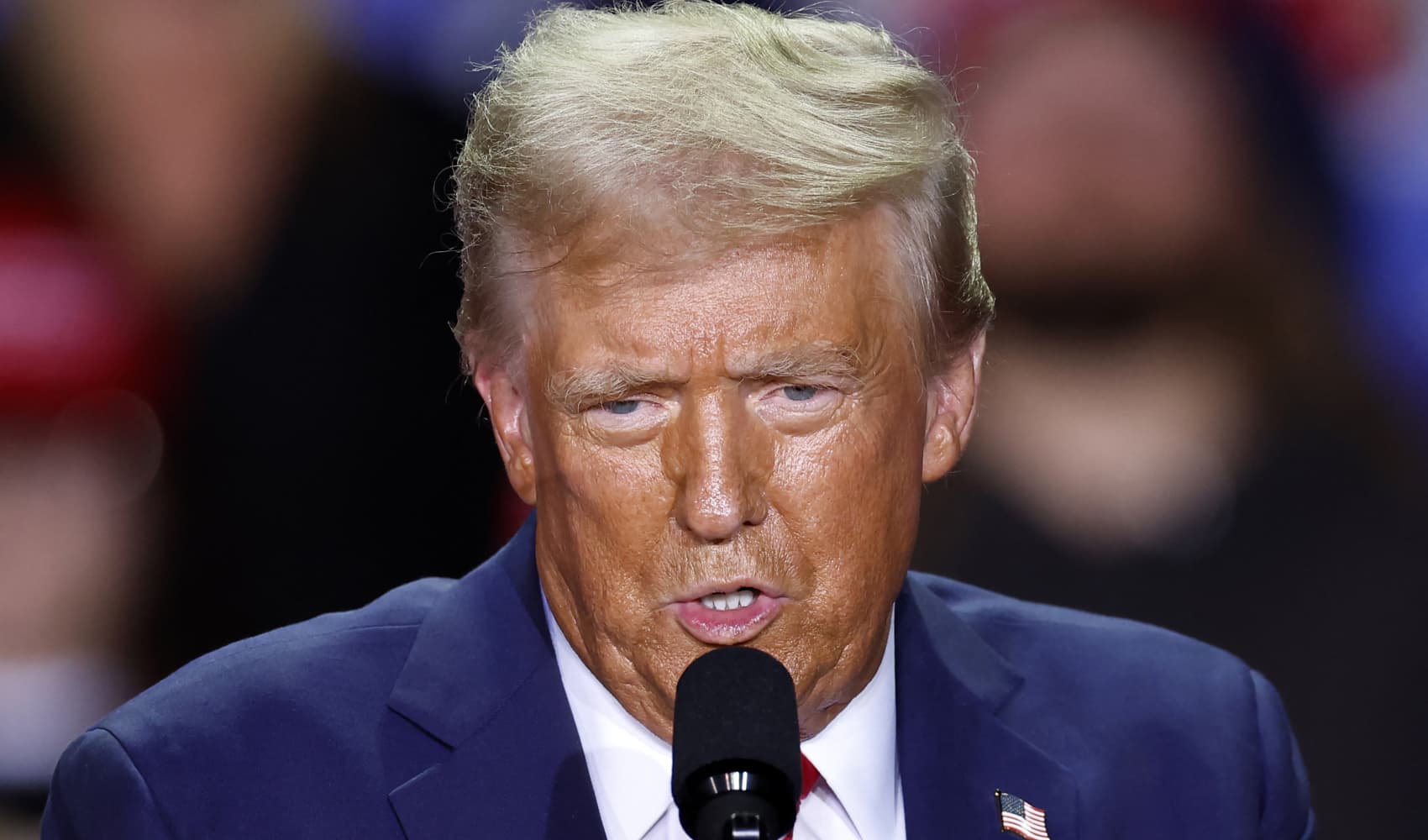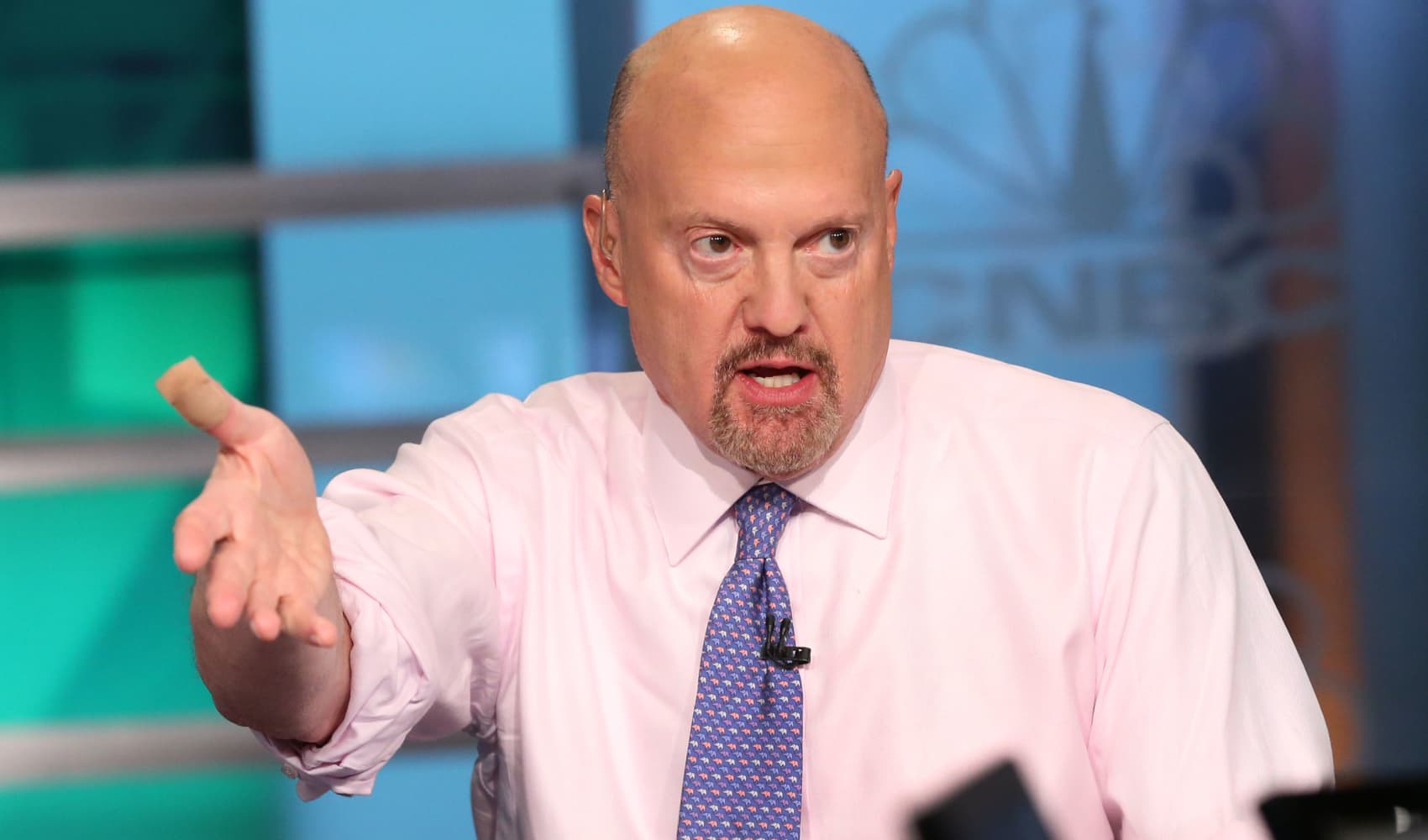
With Election Day underway, income investors should soon find out how their portfolio may — or may not — be affected by the outcome.
Volatility may spike throughout the day and possibly in the weeks ahead.
What investors need to avoid is reacting to the market rumblings, said Colleen Cunniffe, head of global taxable credit research at Vanguard.
"Tune out the noise and keep in mind what you can control," she said. "Stay focused on your long-term investment strategy."
Get top local stories in San Diego delivered to you every morning. Sign up for NBC San Diego's News Headlines newsletter.
In fact, the race between former President Donald Trump and Vice President Kamala Harris is expected to be tight and there is even a possibility the victor may not be immediately clear.
"If results remain opaque days after the election, we expect increased market volatility that could provide investors an opportunity to rebalance their portfolios," Wells Fargo Institute said in an Oct. 29 note.
For instance, the recent rise in Treasury yields after they fell sharply at the end of the summer has presented a window for investors to lock in high yields, said Collin Martin, fixed income strategist at the Schwab Center for Financial Research.
Money Report
"With yields back near the high-end of their 3-year range, it makes sense to extend duration in moderation," he said. That said, Martin expects a lot of volatility going forward and yields may modestly rise or fall depending on the data.
"We prefer investors focus on a 'benchmark' duration that is in-line with the 6.2 average duration of the US Aggregate Index rather than having an average duration that's either too long or too short," he said. "Focus on the income earned, especially with Treasury yields back above 4% all across the curve."
Here is what various experts have said to possibly expect, depending on the ultimate outcome.
Tax moves
One big issue on the agenda is tax policy. Trump has called for reducing corporate tax rates as low as 15% from 21% and for a universal baseline tariff as high as 20% on imports — and up to 60% on imports from China.
Harris has said she wants to boost the corporate tax rate to 28% and increase the top rate for long-term capital gains to 28% for those making more than $1 million.
However, to make those proposals a reality would likely require a sweep of either party.
Also at stake are the provisions in the Tax Cuts and Jobs Act that sunset at the end of 2025, unless Congress intervenes. Among the provisions set to expire are the lowered federal income tax brackets, a $10,000 cap on state and local tax deductions (SALT) and increased alternative minimum tax (AMT) exemption amounts.
With the expiration a year away, investors can at least start thinking about the next step — and at the same time they can get their year-end planning set for 2024.
One way to minimize taxes is to sell some of the worst underperformers in their taxable portfolio as a way to offset capital gains, known as tax loss harvesting. If losses exceed capital gains, investors can subtract up to $3,000 a year from ordinary income.
Municipal bonds
Those tax changes could also have a significant impact on demand for municipal bonds. The interest earned from munis are free from federal tax and, if the investor lives in the issuing state, exempt from state tax as well.
For instance, if the highest tax bracket reverts back to 39.6% from 37%, that would be very good news for munis, said Dan Close, head of municipals at Nuveen.
"The municipal exemption just becomes worth that much more," he said. For instance, a muni bond yielding 5% has a taxable equivalent yield around 7.9% right now, he said. With the new tax rate, that taxable equivalent yield goes to 8.25%, he said.
Meanwhile, the changes to the AMT exemptions has left far fewer taxpayers actually paying the tax, said Craig Brandon, co-head of municipals at Morgan Stanley Investment Management.
That means that those who are buying AMT bonds but not paying AMT are getting free income, he said. Investors buying AMT bonds in the 10- to -12- year range are getting about 50 to 55 extra basis points of yield, Brandon explained. One basis point equals 0.01%.
"If the AMT comes back to where it was under a Harris administration, that will impact demand for those bonds. People may not want those bonds," he said. If Trump wins and makes the AMT changes permanent, "that is 55 basis points of free income and that yield could compress and they could outperform the market."
Lastly, a higher corporate tax rate could also spur banks and insurance companies to return to the muni market. The companies owned a lot of municipal bonds when the tax rate was 35% and many bought more corporate bonds when the tax rate fell to 21%, Brandon said.
RBC Global Asset Management's playbook
Meanwhile, RBC Global Asset Management has come out with two different playbooks based on a Trump win or a Harris win. At the crux of the issue is Trump's trade proposals, which are much broader than the policies in place while he was in office previously.
If Trump imposed 10% tariffs, that could add up to an almost 1% bump in inflation, said Andrzej Skiba, the firm's head of BlueBay U.S. Fixed Income.
The fate of fixed income almost always lies with what will happen with inflation, he added.
"One percent doesn't sound like a lot, but from a Fed perspective, it could make all the difference between being able to cut rates or not," he said. "It would be very significant in terms of forward policy."
Therefore, if Trump is the victor, Skiba would move towards short-duration securities. If Harris wins, he expects more continuity as the Federal Reserve continues to lower rates into a slowing economy. In that scenario, money will continue to move further out on the curve in anticipation of those cuts.
Staying high quality
Several experts suggest staying in high-quality assets right now. For Schwab's Martin that means Treasurys, investment-grade corporate bonds and some mortgage-backed securities.
Vanguard's Cunniffe is also constructive on investment-grade bonds and says the expensive valuations are justified given the state of the economy and healthy corporate balance sheets.
Shorter-dated bonds on the front end of the yield curve offer the most attractive valuations, according to Vanguard. It specifically likes BBB-rated bonds right now.
"What we like about the BBB part of the market, these are companies who will work hard and use the levers they have at their disposal to maintain their credit rating," Cunniff said. "We feel like we are getting paid in that part of the market for that dynamic."
—CNBC's Darla Mercado contributed to this report.






